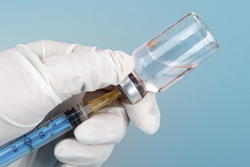A DNA vaccine against leishmaniasis
According to the World Health Organization (WHO), leishmaniasis remains a serious health issue globally, despite research efforts to develop therapeutic interventions. A total of six candidate vaccines are under development, but none have been approved yet for preventing or treating human leishmaniasis. The focus of the EU-funded 'Development of a DNA vaccine for visceral leishmaniasis' (LEISHDNAVAX) project was to deliver a pre-clinical candidate for the development of a prophylactic and therapeutic vaccine. Research over the past few years has shown that immunity against leishmaniasis is mediated by T lymphocytes together with macrophages and dendritic cells. Based on this, LEISHDNAVAX partners designed a vaccine strategy that would mainly trigger the activation of T cells. For this purpose, scientists chose to express Leishmania antigens by the minimalistic immunogenically defined gene expression (MIDGE) vectors known for their ability to induce T cell responses. Seven candidate antigens (A2, CPA, CPB, HASPB, KMP-11, p74 and TSA) were selected for vaccine development based on specified criteria. Their immunogenicity was tested on peripheral blood cells from individuals of endemic regions. The genomic sequence of the best five antigens (KMP-11, TSA, CPA, CPB and p74) was optimised and incorporated into the MIDGE vectors. Results showed that the recombinantly expressed proteins were highly immunogenic and contained high density (40–100 %) of antigenic epitopes. This pentavalent vaccine was used in animals infected with Leishmania and demonstrated T cell-mediated and humoral immune responses. The vaccine subsequently underwent pre-clinical assessment in animals to evaluate its biodistribution and repeated-dose toxicity. Target human population is expected to be heterogeneous with respect to human leukocyte antigen (HLA) polymorphism. Therefore, the consortium decided to keep all five antigens in the proposed vaccine formulation to ensure wide coverage. Researchers analysed the T-cell epitope maps of the vaccine antigens to gain insight on how a vaccinated population of diverse genetic backgrounds responds to immunisation. Produced under good manufacturing practice (GMP) conditions, the candidate vaccine will enter clinical phase I trials for safety and immunogenicity studies in European and disease endemic countries. The LEISHDNAVAX consortium demonstrated that by combining molecular, genetic and immunogenicity criteria it is possible to generate an effective vaccine. Based on their results, partners are hopeful that the proposed five-antigen vaccine will have a major impact on the control and development of the visceral and cutaneous forms of leishmaniasis.







